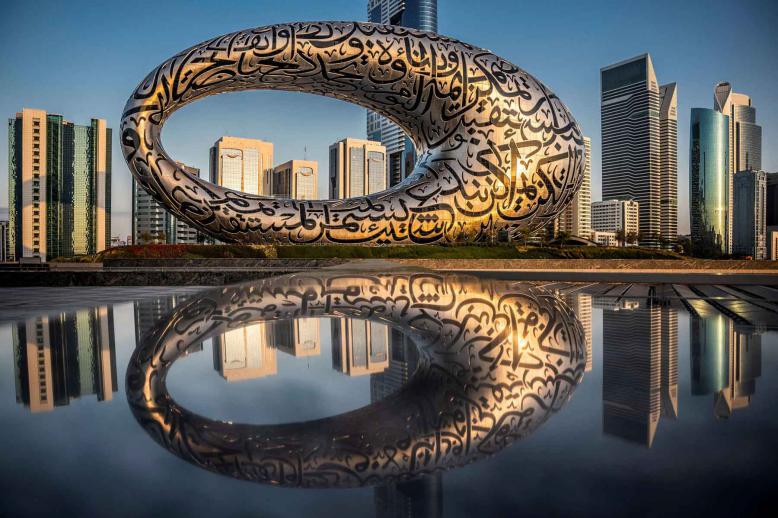Iran’s ‘non-aggression’ talk fools no one
When entering negotiations, whether directly or indirectly, it is important to understand with whom one is dealing, what their motivations are for coming to the table and what objectives they hope to achieve.
On May 26, Iran offered to sign a “non-aggression pact” with its Gulf neighbours, claiming, in the words of Iranian Foreign Minister Mohammad Javad Zarif, that it wants to “build balanced relations” with all Gulf states.
Two days later, Iranian Deputy Foreign Minister Abbas Araqchi, during a visit to Qatar, said Tehran was ready to engage in “dialogue” with Arab Gulf countries to address escalating tensions in the region.
Zarif’s and Araqchi’s statements surprised many, seeming to indicate a radical shift from Iran’s efforts to antagonise neighbours and sow chaos. However, a closer examination reveals that Iran’s offer is nothing but a fresh manoeuvre to trick the world into thinking Tehran is open to peace while further expanding its influence in the region.
One question is “Why now?” Why has Iran suddenly changed its tune and communicated a willingness to sit down with powers it has for so long antagonised?
What is clear is that Iran’s efforts to reach out to its Arab neighbours are not, as some say, aimed at resolving tensions or ending its standoff with Washington. Given the timing of the announcement, Iran’s move was more likely an attempt at preventing a united Arab front at the Mecca summits.
This effort, of course, failed. Arab countries came out of the Mecca summits with a more united front. They gave particular focus on how to come together and address issues such as the Palestinian-Israeli conflict, Iran’s meddling and counter-terror efforts.
For this reason, Iran’s proposals were ignored and are likely to continue to be ignored by Arab countries.
Iran, which has effectively been at war since the inception of the Islamic Republic in 1979, has continually sought to further tension and chaos, not only with the United States and Israel but with neighbouring Gulf countries, through which it legitimises its so-called Islamic revolution.
Only through conflict can Iran’s regime thrive and maintain control over the country’s 81 million people of various sects, religions, ethnicities and cultures. The mullahs’ strategy is to play up nationalist sentiment and fool the people into thinking they face a permanent set of enemies all over the world.
Bearing this in mind, it is clear that Iran’s supposed efforts to engage in dialogue are insincere.
Many observers and experts, however, are taking the bait. They say the country is genuinely willing to pursue friendlier ties with its Arab neighbours. According to this logic, if there is unwillingness to negotiate with Tehran, Arab countries will end up taking the blame.
Iran knows this and is playing it to its advantage.
That said, we should not be so pessimistic as to stand in the way of any possible resolution, agreement or eventual peace deal. Everyone yearns for peace, except for Iran’s leaders, who have given little impression that they are willing to change.
Inflammatory rhetoric from Tehran, diplomatic pressure being exerted on Arab governments, attacks launched through proxy militias, especially the Houthis, and acts of sabotage perpetrated on tankers in the Gulf by the Islamic Revolutionary Guard Corps (IRGC) are hardly positive signs.
So, if Tehran’s Arab neighbours are to consider its offer, shouldn’t they first ask who they are really engaged with?
While some view Iran as similar to many other countries throughout the world, with a united leadership and political consensus, the decision-making process in Tehran’s corridors of power is quite complex.
Some experts say Iranian Supreme Leader Ayatollah Ali Khamenei and his conservative associates always have the final word. Others warn that the IRGC has become a state within a state, competing for power with Khamenei himself. There is also news of political infighting between various factions in Tehran, especially involving President Hassan Rohani and his team of so-called “reformists.”
Given this complex web of players, a pact with Rohani may not mean a pact with Khamenei and a pact with Khamenei may not guarantee the commitment from the IRGC and so on. Unfortunately, this renders Iran’s offer ridiculous and futile.
We should look to history for guidance. How many non-aggression pacts, we should ask, have worked? What became of Adolf Hitler’s pact with Joseph Stalin in 1939, two years before German tanks rolled into Soviet territory? How successful was Iraqi leader Saddam Hussein’s non-aggression pact with Saudi Arabia in 1989, one year before his troops invaded Kuwait?
Iran, which has been meddling in Arab affairs more than 40 years, is not interested in non-aggression or dialogue. Even if it were, it is far too late for the Arab world to take a chance on its “good gestures.”
Iman Zayat is the Managing Editor of The Arab Weekly.
This article was originally published in The Arab Weekly.







